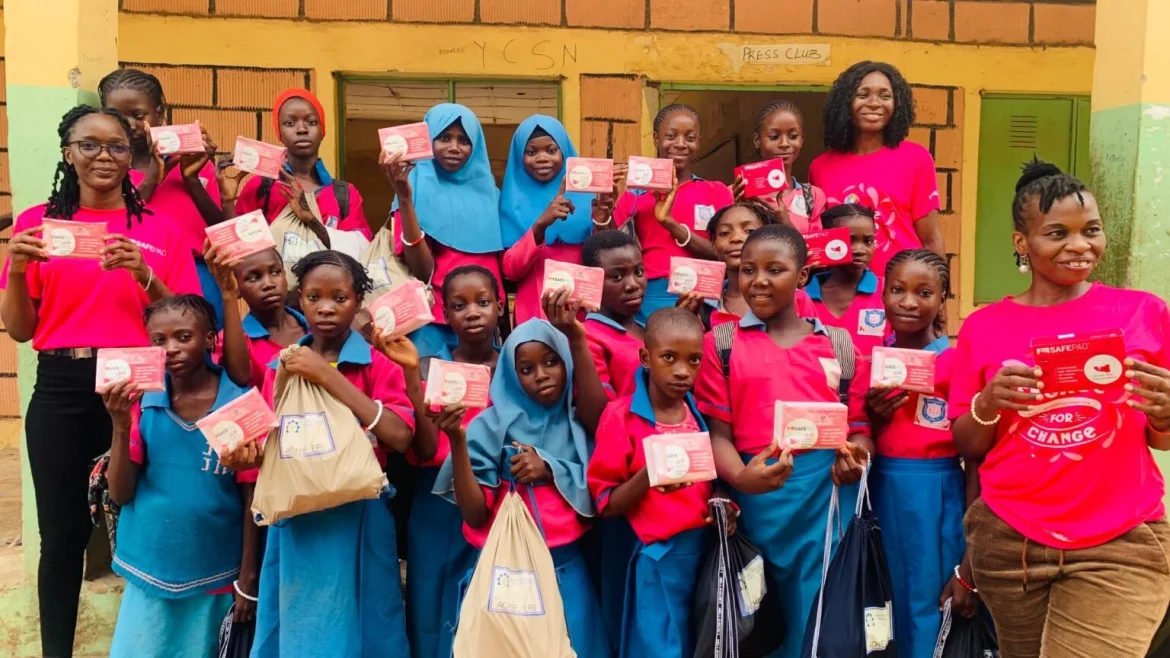By Iyemah David
A non-governmental organisation, the Centre for Family Health Initiative (CFHI), has donated 60 packs of reusable menstrual pads (Safepad) and 25 hygiene kits to vulnerable girls in three junior secondary schools in the Federal Capital Territory (FCT).
The Executive Director of CFHI, Ms. Krystal Chinenye Anyanwu, said that the gesture was to commemorate the 2024 World Menstrual Hygiene Day.
World Menstrual Hygiene Day is mark on May 28, to spotlight the importance of menstrual health, which must be identified as the complete physical, mental, and social well-being of women and girls in relation to the menstrual cycle.
Menstrual hygiene is the ability of women and adolescent girls to manage their menstruation in a hygienic manner, with dignity, using clean menstrual absorbents, and having access to facilities for changing in privacy, as well as for washing their bodies and hands.
The importance of menstrual health and hygiene is increasingly recognized as an integral element in the promotion of public health, the advancement of gender equality, and the safeguarding of human rights, well aligned with the Sustainable Development Goals, specifically Target 6.2.
The donations were made to Junior Secondary School Takurshara, Junior Day Secondary School Jiwa, and Government Secondary School Nyanya in Abuja.
Anyanwu said it was made possible in collaboration with the Ministry of Women Affairs, Supportive Edge Foundation, RealRelief, and the Institute of Human Virology Nigeria (IHVN).
She underscored that menstrual hygiene encompasses the practices and conditions that enable women and girls to manage their menstruation with dignity, safety, and comfort.
“This includes access to menstrual products, clean and private facilities, water and soap, accurate education, and safe disposal methods.
“Proper menstrual hygiene is essential for the health and well-being of women and girls, preventing infections and supporting their participation in education and daily activities,” she said.
Anyanwu pointed out that by providing these reusable pads, CFHI was not only promoting gender equality by allowing girls to participate equally in educational and social opportunities, but also easing the financial burden on families.
She added that the initiative would enable girls to manage their periods with dignity, reduce school absenteeism, and prevent the use of unsafe or unhygienic alternatives that can lead to infections and other health issues.
Additionally, she mentioned that CFHI continues to raise awareness about menstrual health and hygiene, empowering both girls and boys with knowledge and dispelling misconceptions associated with menstruation.
“This fosters a more inclusive and supportive environment for all. The adolescent girls were also trained on how to make menstruation bracelets,” she said.
While receiving the items, the Principal of Takurshara, Mrs Philomena Nashel, commended CFHI for the donations and acknowledged the impact on the students.
Nashel encouraged CFHI to continue the good work by sensitizing more adolescents, including parents, as many shy away from such topics.
in 2023, the Ministry of Women Affairs and Social Development said more than 37 million girls and women in Nigeria cannot afford menstrual hygiene products.
That means every month, more than 37 million girls and women are unable to safely manage their periods, limiting their ability to study, work and live their lives.
While this is an unfortunate situation that has become normal, it still doesn’t make the situation less alarming.
Over the last 11 years, sanitary pads — which are the preferred period product in the country — have been subjected to ridiculously inflated prices, especially imported sanitary pads.




